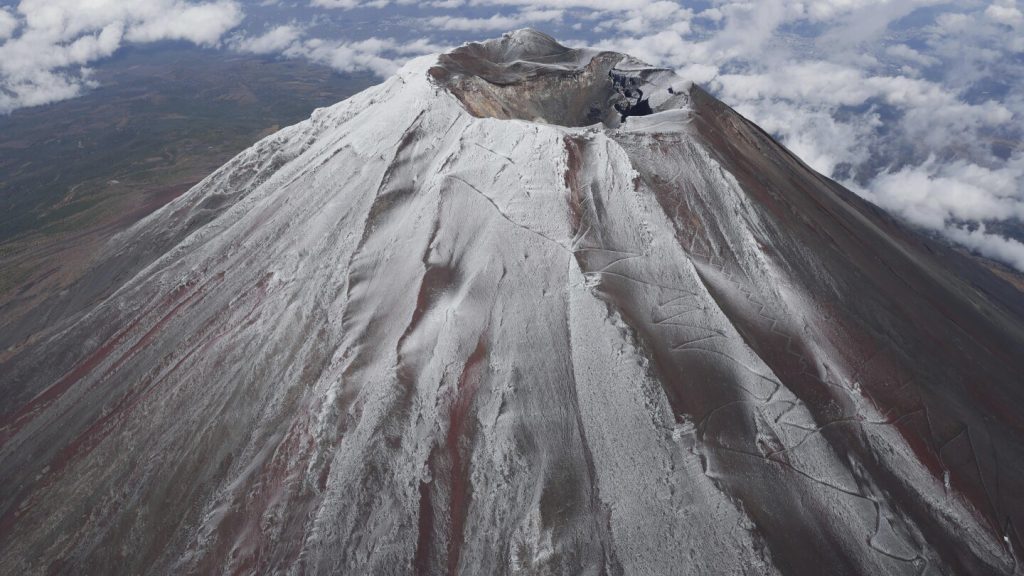After a delayed snowfall, Japan’s iconic Mount Fuji finally received its trademark snowcap more than a month later than usual, setting a record for the most-delayed snowfall in 130 years. The first snowfall on the 3,776-meter-high mountain, a UNESCO World Heritage site, was observed from the southwestern side, although the official announcement by the Japan Meteorological Agency was still pending due to cloudy weather obstructing the view from the Kofu Local Meteorological Office. This year’s lack of snow on Mt. Fuji surpassed the previous record set in 2016, with temperatures higher than usual across Japan causing the delay.
Despite the delay in the snowfall on Mt. Fuji, people took to social media to share photos of the bare mountain, with some expressing surprise and others voicing concerns over climate change. The Japan Meteorological Agency’s Kofu office attributed the delay to the unusually warm weather experienced in October, leading to the postponement in the formation of the snowcap. Officials continued to monitor the situation and attempt to get a glimpse of the first snowfall on the iconic mountain, which is eagerly awaited by many.
While this year’s late snowcap on Mt. Fuji has captured attention, officials are cautious about linking it to global warming. The previous year saw an early snowfall in early October, suggesting that a longer period of data analysis is required to draw conclusions. The average October temperature at the summit of Mt. Fuji has been higher this year compared to historical records, with climate anomalies affecting Japan throughout the year. The mountain, known as “Fujisan,” holds cultural significance in Japan and has been a subject of various artworks, attracting both hikers and environmental concerns.
Jun Kubota, a weather forecaster and climber familiar with Mt. Fuji, expressed concerns about the potentially shrinking season for snow enjoyment, not only on Mt. Fuji but also on other mountains in central Japan and Hokkaido. Reports of snow shortages on ski slopes in recent years have raised alarms about the impact on winter sports and activities. As the delayed snowfall raises questions about environmental protection and overtourism around Mt. Fuji, local authorities and environmental advocates are emphasizing the need for sustainable practices and measures to preserve the iconic mountain for future generations.
As the snow finally made its appearance on Mt. Fuji, after setting a record for the latest snowfall in over a century, the event serves as a reminder of the changing climate patterns and their impact on iconic landmarks. The delayed snowcap on Mt. Fuji prompts discussions about the broader implications of climate change on Japan’s natural landscapes, and the need for proactive measures to mitigate environmental risks. Amidst concerns about the future of winter activities and the preservation of cultural heritage sites like Mt. Fuji, the late snowfall serves as a catalyst for reflection and action towards sustainable practices and climate resilience.


